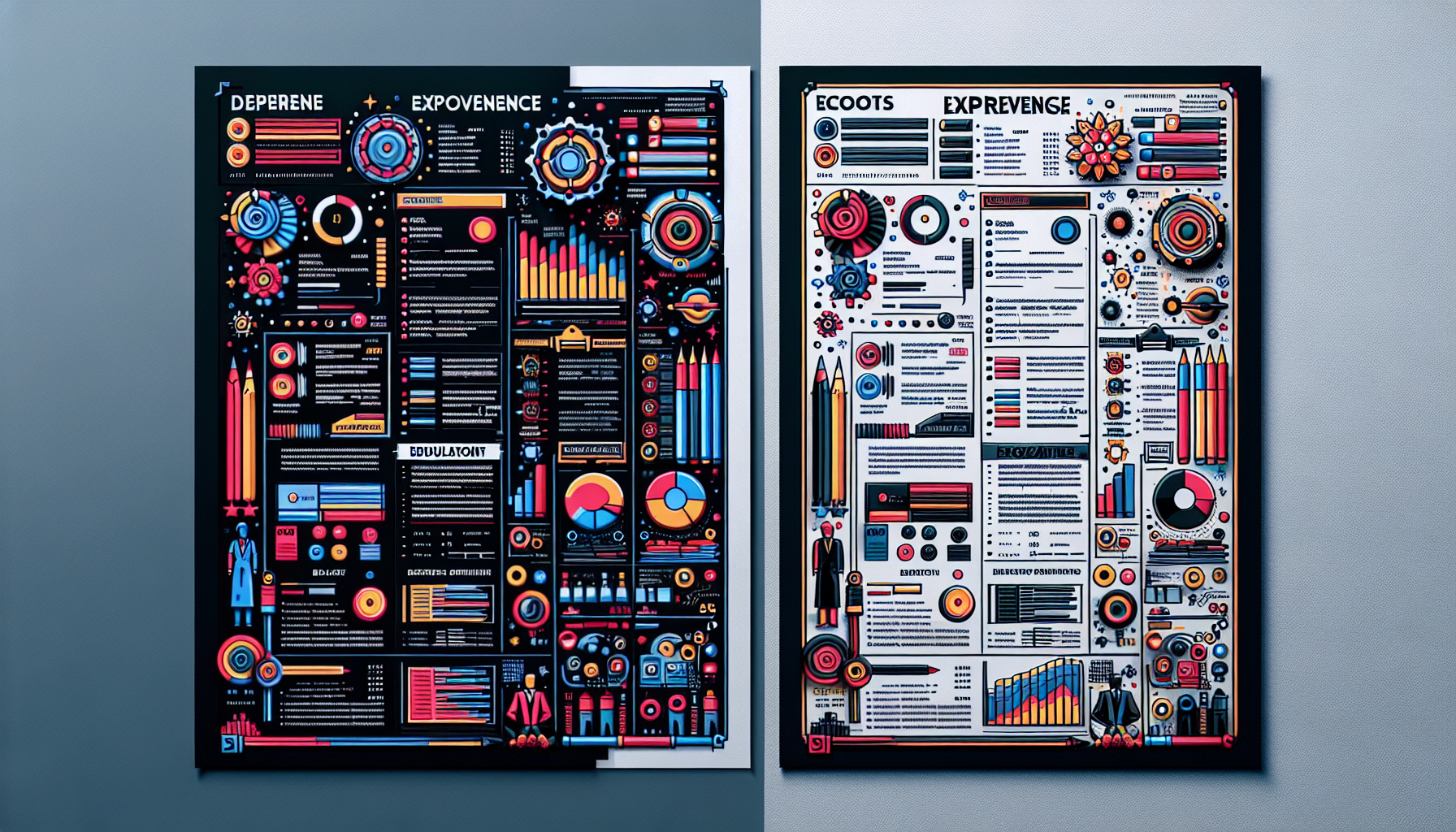Achievement-Based Job Search Strategy: Transform Your Career Success Rate in 2024
Meta: Learn how to revolutionize your job search with achievement-focused strategies. Discover the CARL framework, micro-goal system, and strategic storytelling techniques for career success.
Did you know that candidates who focus on achievements in their job applications are 3x more likely to land interviews than those who simply list responsibilities? In today's hyper-competitive job market, standing out isn't just about what you've done – it's about how you tell your professional story! I'm excited to share how transforming your job search approach from duty-focused to achievement-centered can dramatically improve your success rate.

Understanding the Psychology of Achievement-Based Job Applications
Let's dive into why achievement stories are so powerful in job applications. Have you ever wondered why hiring managers seem to perk up when you mention specific accomplishments?
It's all about the psychology of decision-making. When you share a concrete achievement, you're giving the hiring manager tangible evidence of your capabilities. It's like showing them a highlight reel of your career!
But why does this work so well? Well, our brains are wired for stories. We remember narratives far better than we do dry facts and figures. That's why a well-told achievement story can stick in a hiring manager's mind long after the interview is over.
And here's a pro tip: quantifiable results are like catnip for decision-makers. When you can say "I increased sales by 30%" or "I reduced costs by $100,000," you're speaking their language. Numbers provide clarity and context that make your achievements feel real and significant.
Mastering the CARL (Challenge-Action-Result-Learning) Framework
Now, let's talk about a powerful tool for structuring your achievement stories: the CARL framework. CARL stands for Challenge, Action, Result, and Learning. It's a simple yet effective way to showcase your accomplishments.
Here's how it breaks down:
- Challenge: What problem or situation did you face?
- Action: What steps did you take to address it?
- Result: What was the outcome of your actions?
- Learning: What did you gain from this experience?
Let's look at a real-world example:
"We were facing a 20% drop in customer satisfaction (Challenge). I implemented a new training program for our customer service team (Action). Within three months, our satisfaction scores improved by 25% (Result). This taught me the importance of ongoing staff development and its direct impact on customer experience (Learning)."
Sounds impressive, right? But watch out for common mistakes. Don't be vague, don't exaggerate, and always make sure you're highlighting your personal contribution.
Here's a template you can use to create your own CARL stories:
- Challenge: In [year/situation], [describe the problem].
- Action: To address this, I [list specific actions taken].
- Result: As a result, [quantify the outcome].
- Learning: Through this experience, I learned [key takeaway].
Implementing the Micro-Goal System for Job Search Success
Let's shift gears and talk about how to stay motivated during your job search. Have you ever felt overwhelmed by the process? That's where the micro-goal system comes in handy.
The idea is simple: break down your job search into small, achievable daily targets. Instead of saying "I need to find a job," try "Today, I'll update my LinkedIn profile" or "I'll reach out to two networking contacts."
Why does this work? Because each small win gives you a dopamine boost, keeping you motivated. It's like climbing a mountain – focusing on the next step rather than the daunting peak.
Tracking your progress is crucial. You might use a simple spreadsheet or a task management app like Trello. The key is to visually see your accomplishments piling up.
Here's a quick template for daily goal-setting:
- Morning: Set 3-5 micro-goals for the day
- Evening: Review and check off completed tasks
- Weekly: Reflect on progress and adjust goals as needed
Remember, consistency is key. Small actions, done regularly, lead to big results!
Strategic Skill Development as a Competitive Edge
Now, let's talk about leveling up your skills. In today's fast-paced job market, continuous learning isn't just nice to have – it's essential.
First, identify high-impact skills in your industry. What are the buzzwords in job descriptions? What skills do industry leaders emphasize? These are your targets.
Next, create a personal development roadmap. This could be a simple list or a more detailed plan with timelines. The important thing is to have a clear direction.
Don't overlook learning opportunities in your current role. Can you take on new projects? Shadow a colleague? Sometimes, the best learning happens on the job.
When it comes to demonstrating your growth, be specific. Instead of saying "I'm always learning," try "I recently completed a course in data visualization and applied it to improve our quarterly reports."
Remember, the goal isn't just to learn – it's to show how your new skills make you an even more valuable asset to potential employers.
Transforming Your Resume into a Marketing Document
Let's wrap up by talking about your resume. It's not just a list of jobs – it's a marketing document for your most important product: you!
The key is to focus on achievements rather than duties. Instead of "Responsible for social media," try "Grew Instagram following by 10,000 in six months."
Quantifying your impact is crucial. Use numbers, percentages, and dollar amounts wherever possible. "Increased efficiency" becomes much more powerful when it's "Increased team efficiency by 30%, saving the company $50,000 annually."
Tailor your metrics to your industry. In sales, you might focus on revenue generated. In marketing, it could be lead generation or conversion rates. In project management, on-time and on-budget deliveries are key.
Here's a quick before and after:
Before: "Managed social media accounts for the company."
After: "Grew social media engagement by 200% across platforms, directly contributing to a 15% increase in web traffic and $100,000 in attributable sales."
See the difference? The 'after' version tells a compelling story of impact and results. That's what will make your resume stand out in a sea of applicants.

Conclusion
Wrap up with emphasis on the transformative power of achievement-focused job searching, including a clear call-to-action for implementing these strategies immediately.




